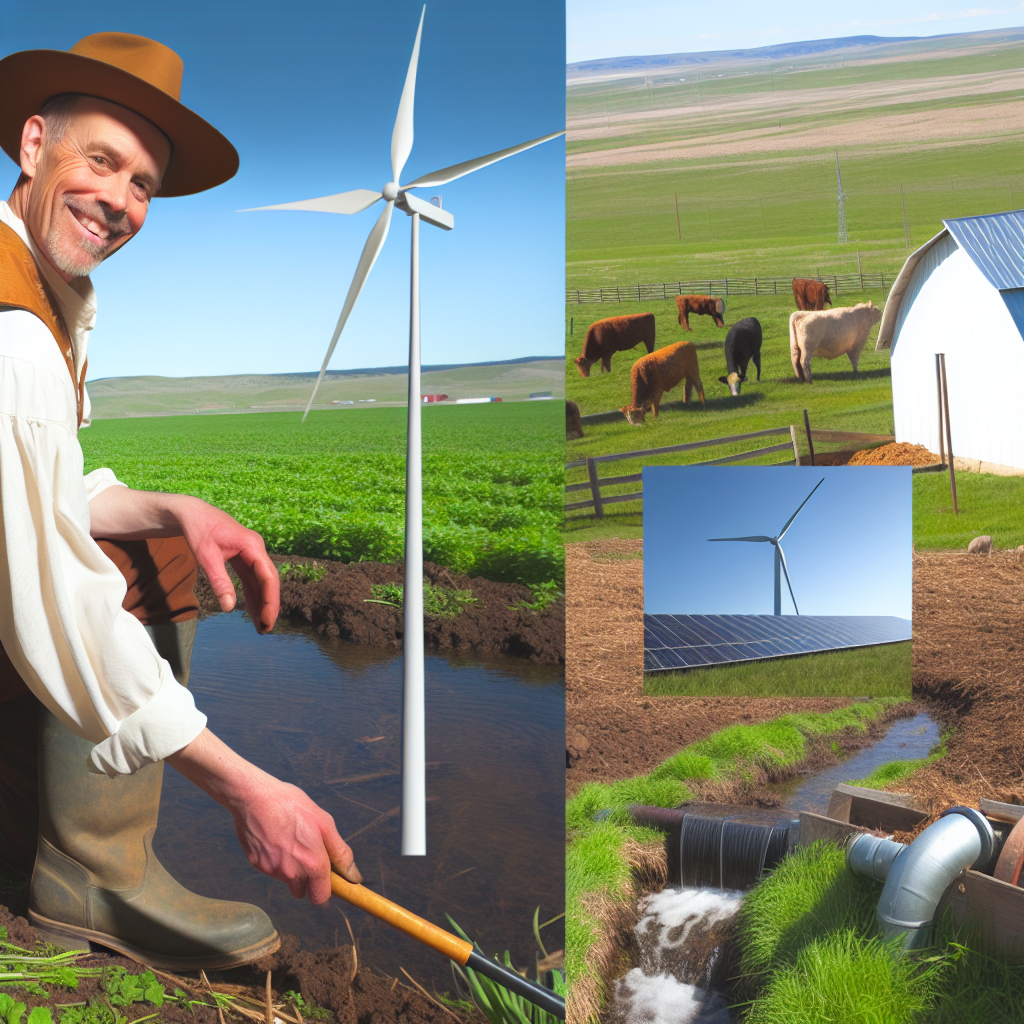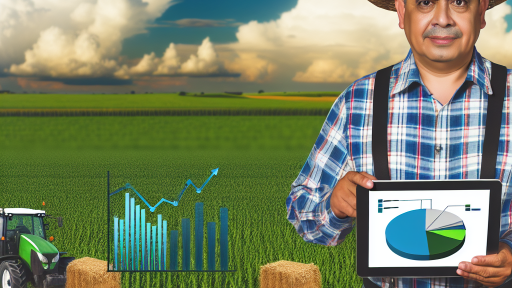Overview of Climate Legislation Affecting Agriculture
Significance of Climate Legislation
Climate legislation impacts the agricultural sector significantly.
It influences farming practices, land use, and sustainability efforts.
Farmers must be aware of current regulations to remain compliant.
Types of Climate Legislation
Several key types of legislation govern agricultural practices.
- Emission reduction targets aim to lower greenhouse gas outputs.
- Water management laws focus on conserving water resources.
- Soil conservation regulations promote sustainable soil management.
Federal Initiatives
The federal government implements various programs to support farmers.
Initiatives like the Farm Bill include funding for conservation projects.
Additionally, grants are available for adopting sustainable practices.
State Regulations
Many states have their own climate legislation affecting agriculture.
For example, California has specific emissions regulations.
Farmers should review state regulations for compliance requirements.
Global Agreements
International agreements also play a role in shaping climate policies.
The Paris Agreement aims to limit global warming through emissions targets.
Farmers may need to adapt practices to align with these agreements.
Impacts on Farming Operations
Climate legislation can alter the financial landscape for farmers.
Compliance may require investments in new technologies.
Transform Your Agribusiness
Unlock your farm's potential with expert advice tailored to your needs. Get actionable steps that drive real results.
Get StartedHowever, non-compliance could lead to fines or loss of subsidies.
Benefits of Compliance
Adhering to climate legislation can yield numerous benefits.
It can enhance long-term viability and sustainability of farms.
Furthermore, compliance may open doors to funding and support.
Understanding Key Terms and Concepts in Climate Policies
Introduction to Climate Legislation
Climate legislation aims to address climate change through various laws and regulations.
These policies establish guidelines for reducing greenhouse gas emissions.
Moreover, they often encourage the adoption of sustainable practices in agriculture.
Key Terminology
To navigate climate policies, it’s essential to understand specific terms.
Firstly, “greenhouse gases” refer to gases like carbon dioxide and methane.
These gases trap heat in the atmosphere, contributing to global warming.
Next, “carbon footprint” measures the total greenhouse gas emissions from a source.
This concept helps evaluate the environmental impact of farming practices.
Lastly, “sustainability” signifies practices that meet current needs without compromising future generations.
Types of Climate Policies
Various climate policies affect farmers directly and indirectly.
One type is regulatory policies, which mandate specific environmental practices.
For example, farmers may need to comply with emission reduction targets.
Another category is incentive-based policies, offering financial benefits for sustainable practices.
These can include tax breaks or grants for adopting green technologies.
The Role of Local Governments
Local governments often play a crucial role in climate legislation enforcement.
They implement regulations that align with national climate goals.
Moreover, they can provide resources and support for farmers seeking compliance.
Farmers should communicate with local officials to stay informed about regulations.
Interpreting Compliance Guidelines
Understanding compliance guidelines is vital for successful adaptation to climate policies.
Guidelines outline required practices and reporting processes for farmers.
Showcase Your Farming Business
Publish your professional farming services profile on our blog for a one-time fee of $200 and reach a dedicated audience of farmers and agribusiness owners.
Publish Your ProfileFarmers should familiarize themselves with the specific benchmarks set by legislation.
In turn, this knowledge can help them avoid penalties and enhance sustainability efforts.
Resources for Farmers
Numerous resources are available to help farmers navigate climate legislation.
Agricultural extension services often provide educational materials and workshops.
Additionally, online platforms can offer updated information on policy changes.
Farmers may also connect with organizations focused on climate advocacy for support.
Identifying Relevant Climate Programs and Incentives for Farmers
Understanding Available Programs
Farmers must familiarize themselves with various climate-related programs.
These programs can provide essential resources and support.
Federal, state, and local programs may differ in focus and benefits.
Each program targets specific climate issues affecting agriculture.
Key Federal Programs
The USDA offers several initiatives aimed at climate resilience.
The Conservation Stewardship Program encourages sustainable practices.
This program rewards farmers for improving their conservation efforts.
The Environmental Quality Incentives Program provides financial incentives.
It helps fund practices that enhance environmental quality and reduce pollution.
State-Level Incentives
Many states create their own climate initiatives tailored to local needs.
For instance, California has the Healthy Soils Program.
This initiative promotes soil health through conservation practices.
Farmers in other states may find similar programs focusing on local conditions.
Local Assistance Programs
Local governments often develop support programs for farmers.
These initiatives may include grants for sustainable technologies.
Some localities help farmers access renewable energy options.
Community-based programs can also provide education on climate adaptation.
Researching Financial Incentives
Farmers should explore available financial incentives carefully.
Grants, loans, and tax breaks can significantly impact your farm’s financial health.
Many universities and agricultural extension services provide guidance.
Networking with other farmers can reveal new opportunities as well.
Utilizing Partnerships
Collaborating with environmental organizations can be beneficial.
Partnerships often lead to shared resources and knowledge.
Organizations may offer additional funding or technical assistance.
For instance, local conservation groups often have relevant programs.
Staying Informed
Farmers must keep abreast of changing legislation and programs.
Regularly check government websites for updates on new initiatives.
Attend workshops and informational sessions to learn more.
Subscribing to newsletters focused on agricultural policy is also helpful.
Find Out More: Long-Term Benefits Of Conservation Programs For Farmers
Steps for Assessing Farm Operations’ Climate Impact
Identify Key Areas of Impact
Start by recognizing the main areas where your operations affect the climate.
Look at water usage, soil management, and greenhouse gas emissions.
These aspects significantly influence the overall environmental footprint.
Gather Data and Analyze Current Practices
Collect data on your farming practices to understand their climate impact.
Showcase Your Farming Business
Publish your professional farming services profile on our blog for a one-time fee of $200 and reach a dedicated audience of farmers and agribusiness owners.
Publish Your ProfileFor instance, track inputs like fertilizers and energy consumption.
Analyze historical data to identify trends and patterns.
Utilize tools and software designed for sustainability assessments.
Evaluate Carbon Footprint
Calculate your farm’s carbon footprint to measure its impact.
Consider emissions from equipment, transportation, and livestock.
Use online calculators or consult with specialists for accurate results.
Engage Stakeholders and Experts
Involve your team and key stakeholders in the assessment process.
Discuss findings and get insights from local agricultural experts.
Collaborate with organizations focusing on sustainable farming practices.
Set Reduction Targets
Establish clear and achievable targets for reducing your climate impact.
Align these targets with local and national climate goals.
Make sure these goals are realistic and measurable over time.
Implement Sustainable Practices
Adopt practices that enhance sustainability and reduce emissions.
Consider crop rotation, cover cropping, and reduced tillage methods.
Implement renewable energy solutions like solar panels if feasible.
Monitor Progress Regularly
Continuously monitor your operations to assess progress towards targets.
Utilize metrics to quantify improvements and keep track of changes.
Regular reviews will help you stay accountable and adjust strategies.
Educate and Train Staff
Provide education and training for your staff on sustainable practices.
Ensure everyone understands their role in reducing the farm’s impact.
Foster a culture of sustainability within your farming operations.
Report Findings and Adjust Strategies
Document your assessment findings and communicate them to stakeholders.
Share successes and areas that need improvement.
Be flexible and willing to adjust your strategies based on new data.
Learn More: Key Food Safety Regulations Every Farmer Should Know
Strategies for Achieving Compliance with Climate Regulations
Understanding Climate Regulations
Climate regulations aim to reduce greenhouse gas emissions.
Farmers must familiarize themselves with these laws.
Understanding the specific requirements helps avoid penalties.
Regular updates are essential as regulations evolve frequently.
Implementing Sustainable Practices
Sustainable farming practices can significantly reduce emissions.
Consider crop rotation to enhance soil health.
Integrate cover crops to improve soil quality.
Also, adopt no-till farming techniques to minimize disturbance.
Utilizing Renewable Energy
Investing in renewable energy sources can lower your carbon footprint.
Solar panels provide an efficient energy alternative for farms.
Wind turbines can also contribute to sustainability efforts.
These investments may yield long-term savings on energy costs.
Monitoring and Reporting Emissions
Accurate monitoring of emissions is crucial for compliance.
Use technology to track emissions effectively.
Consider software that offers real-time data analysis.
Showcase Your Farming Business
Publish your professional farming services profile on our blog for a one-time fee of $200 and reach a dedicated audience of farmers and agribusiness owners.
Publish Your ProfileRegular environmental assessments help identify areas for improvement.
Engaging with Local Authorities
Collaboration with local authorities facilitates understanding regulations.
Attend community meetings to stay informed about local climate goals.
Develop relationships with environmental agencies for guidance.
Active participation may open opportunities for funding and resources.
Investing in Education and Training
Ongoing education is vital for staying compliant.
Attend workshops that focus on sustainable farming practices.
Online courses can also provide valuable insights into regulations.
Encourage employees to participate in training sessions.
Aligning with Industry Standards
Adopting industry best practices enhances compliance efforts.
Participate in local and national agricultural coalitions.
Share experiences and strategies with peers for knowledge exchange.
These alliances can strengthen your commitment to climate initiatives.
Uncover the Details: Policy Strategies for Climate-Smart Agriculture

Best Practices for Sustainable Farming and Climate Resilience
Understanding Climate Resilience
Climate resilience refers to the ability to adapt to changing climatic conditions.
This involves modifying practices to withstand extreme weather events.
Farmers must assess their vulnerabilities to better tailor their strategies.
Employing regenerative farming techniques can enhance soil health.
Healthy soils support crop resilience to drought and heavy rainfall.
Implementing Sustainable Practices
Sustainable farming practices reduce environmental impacts significantly.
Crop rotation is an essential technique in sustainable agriculture.
This method prevents soil depletion and manages pests naturally.
Integrating cover crops can also enhance soil fertility and moisture retention.
Moreover, utilizing organic fertilizers supports healthier ecosystems.
Water Management Strategies
Effective water management is crucial in sustainable farming.
Implementing drip irrigation systems conserves water efficiently.
Rainwater harvesting captures valuable resources for crop irrigation.
Farmers should consider planting drought-resistant crop varieties.
These varieties thrive under limited water conditions.
Embracing Renewable Energy Solutions
Utilizing renewable energy sources can reduce reliance on fossil fuels.
Solar panels offer a sustainable energy solution for farms.
Wind turbines can harness energy in suitable locations.
By adopting these practices, farmers lower their carbon footprints.
This transition enhances sustainability and reduces operational costs.
Engaging in Community and Education
Collaboration among farmers strengthens community resilience.
Sharing knowledge and resources leads to better practices.
Participating in local extension programs fosters continuous learning.
Farmers can attend workshops to stay updated on climate legislation.
Moreover, engaging in community-supported agriculture builds strong local ties.
Find Out More: Complying with Animal Welfare Regulations: A Farmers Guide
Showcase Your Farming Business
Publish your professional farming services profile on our blog for a one-time fee of $200 and reach a dedicated audience of farmers and agribusiness owners.
Publish Your ProfileNavigating Record-Keeping and Reporting Requirements
Understanding Compliance Necessities
Farmers must understand their compliance obligations thoroughly.
Each legislation requires specific records for accurate reporting.
Compliance prevents penalties and ensures access to benefits.
Staying informed about changes in legislation is essential.
Essential Record-Keeping Practices
Maintain detailed records of all agricultural activities.
Include inputs, outputs, and practices used on the farm.
Store documentation such as receipts, contracts, and reports.
Use digital tools to organize and back up your records.
Regularly update records to reflect current practices.
Best Practices for Effective Documentation
Establish a routine to review your records regularly.
Utilize a designated system for categorizing documents.
Train staff on the importance of accurate record-keeping.
Implement an audit schedule to verify record integrity.
Reporting Obligations
Farmers must understand when and how to submit reports.
Key deadlines must be noted to avoid late submissions.
Utilize templates and guidelines provided by authorities.
Be proactive in reporting any changes in farming practices.
Common Reporting Requirements
- Annual environmental impact assessments
- Documentation of pesticide usage and applications
- Reports on crop yields and soil health
- Compliance reports for federal and state programs
Leveraging Technology for Compliance
Utilize software tools to simplify record-keeping and reporting.
Consider cloud-based solutions for easy access and security.
Technology can enhance accuracy and reduce manual errors.
Explore resources for training on using these technologies.
Seeking Professional Guidance
Consult with experts in agricultural law and compliance.
Advisors can provide valuable insights on regulations.
Consider joining local agricultural organizations for support.
Engaging with peers can enhance knowledge sharing and resources.
Resources and Tools for Farmers to Stay Informed on Legislation
Government Websites
Farmers can find valuable information on government websites.
The USDA offers updates on agricultural policies.
State agriculture departments provide localized news and regulations.
Farmers should regularly check these resources for new legislation.
Industry Associations
Industry associations often share insights on compliance.
Organizations like the Farm Bureau offer resources for their members.
Joining these associations connects farmers to valuable networks.
They also provide workshops and training on legislation.
Online News Platforms
Many online platforms focus specifically on agriculture news.
Websites like Agri-Pulse provide updates on climate-related legislation.
These platforms cover both national and state-level changes.
Subscribing to newsletters ensures farmers stay informed.
Social Media Groups
Social media can be an excellent tool for real-time updates.
Farmers should follow relevant hashtag discussions and groups.
Engaging in these communities fosters knowledge sharing.
Showcase Your Farming Business
Publish your professional farming services profile on our blog for a one-time fee of $200 and reach a dedicated audience of farmers and agribusiness owners.
Publish Your ProfileIt also highlights grassroots movements affecting legislation.
Educational Programs and Workshops
Many organizations offer educational programs on legislation.
Universities and extension services conduct free or low-cost workshops.
These programs include training in sustainable practices.
Networking during events helps farmers build supportive communities.
Technology Solutions
Farm management software often includes compliance tracking features.
These tools can automatically update farmers on legislative changes.
Apps provide immediate access to relevant information.
Farmers should explore these resources to enhance their compliance efforts.




